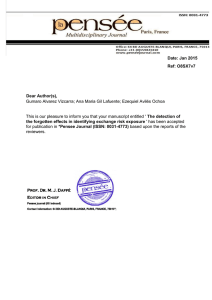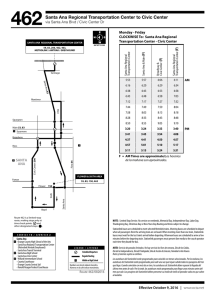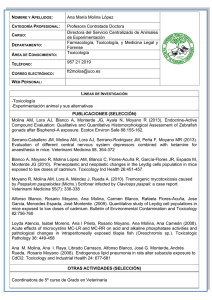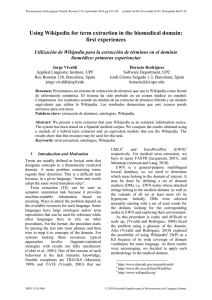Abascal Fernández, E. and Landaluce Calvo, M. I. Análisis
Anuncio
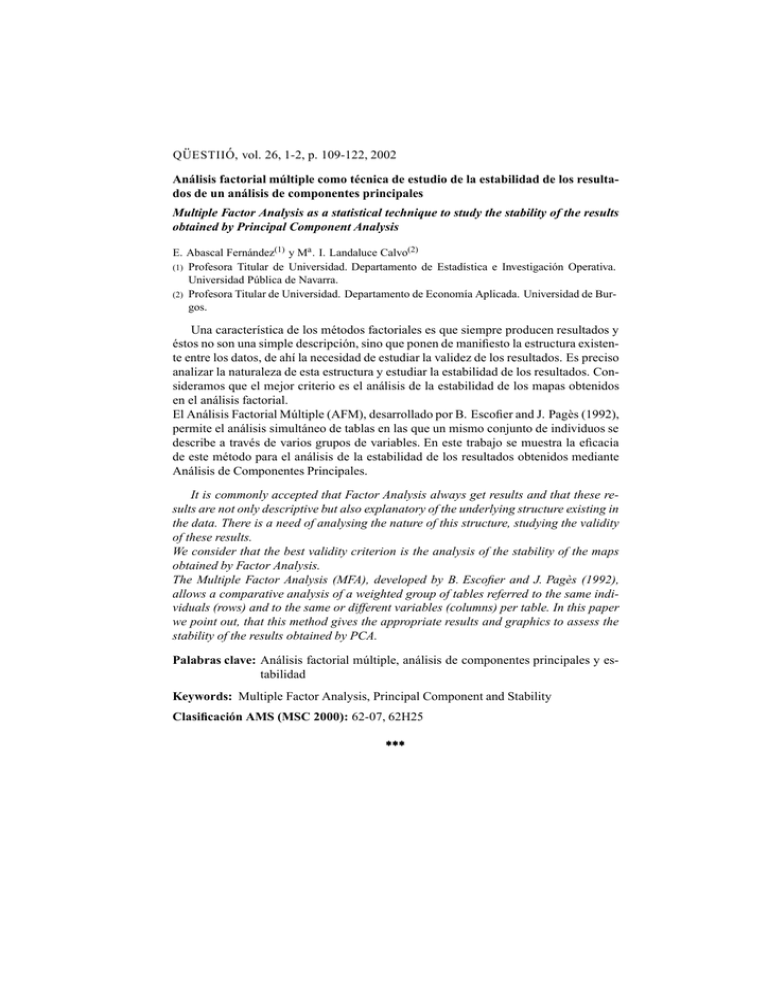
Q ÜESTII Ó , vol. 26, 1-2, p. 109-122, 2002 Análisis factorial múltiple como técnica de estudio de la estabilidad de los resultados de un análisis de componentes principales Multiple Factor Analysis as a statistical technique to study the stability of the results obtained by Principal Component Analysis E. Abascal Fernández(1) y Ma . I. Landaluce Calvo(2) (1) Profesora Titular de Universidad. Departamento de Estadı́stica e Investigación Operativa. Universidad Pública de Navarra. (2) Profesora Titular de Universidad. Departamento de Economı́a Aplicada. Universidad de Burgos. Una caracterı́stica de los métodos factoriales es que siempre producen resultados y éstos no son una simple descripción, sino que ponen de manifiesto la estructura existente entre los datos, de ahı́ la necesidad de estudiar la validez de los resultados. Es preciso analizar la naturaleza de esta estructura y estudiar la estabilidad de los resultados. Consideramos que el mejor criterio es el análisis de la estabilidad de los mapas obtenidos en el análisis factorial. El Análisis Factorial Múltiple (AFM), desarrollado por B. Escofier and J. Pagès (1992), permite el análisis simultáneo de tablas en las que un mismo conjunto de individuos se describe a través de varios grupos de variables. En este trabajo se muestra la eficacia de este método para el análisis de la estabilidad de los resultados obtenidos mediante Análisis de Componentes Principales. It is commonly accepted that Factor Analysis always get results and that these results are not only descriptive but also explanatory of the underlying structure existing in the data. There is a need of analysing the nature of this structure, studying the validity of these results. We consider that the best validity criterion is the analysis of the stability of the maps obtained by Factor Analysis. The Multiple Factor Analysis (MFA), developed by B. Escofier and J. Pagès (1992), allows a comparative analysis of a weighted group of tables referred to the same individuals (rows) and to the same or different variables (columns) per table. In this paper we point out, that this method gives the appropriate results and graphics to assess the stability of the results obtained by PCA. Palabras clave: Análisis factorial múltiple, análisis de componentes principales y estabilidad Keywords: Multiple Factor Analysis, Principal Component and Stability Clasificación AMS (MSC 2000): 62-07, 62H25 ***


